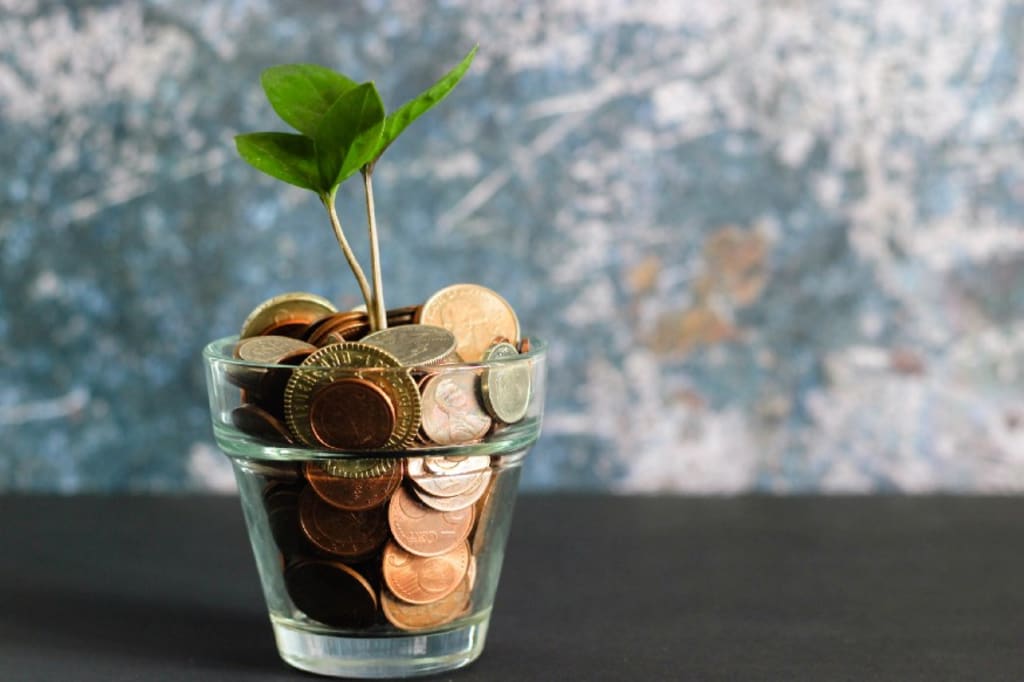What School Failed to Teach You About Money.
I’d like to educate you about certain money traps you should avoid in your thirties.

As a result, prepare to enter middle adulthood.
It’s a significant shift in priorities that takes place right there.
You’re starting to make a little more money after you stop counting down the days until your next payday.
It’s time to start seriously preparing your financial future. It’s easy to put off doing so because you’ve never had to do it before, but what’s the point, right?
You’re eating, and you’re used to eating hand to mouth, but not so much now.
Mike Tyson, a professional boxer and heavyweight champion, declared bankruptcy in 2003, despite amassing over $300 million in debt over the course of his career. This raises an interesting question about money because many of our actions or motivations in life have an underlying desire or need to acquire it, but what is the point of acquiring it?
If our capacity to manage it appears to be the major issue, Americans currently have the most credit card debt in history.
You didn’t learn anything about debt, which is an invisible cost borne by the country’s most vulnerable citizens.
Of course, these figures apply to the United Kingdom and the United States, but analyse your own attitude toward money and how money is used in your own life.
To you, what does money mean?
Has it ever put you in a vulnerable position, a vulnerability that drew you closer to a get-rich-quick scheme or a guru telling you that you can get rich if you just bought their course? While my entire channel aims to tackle these topics to some degree or another, I recognise that our perceptions of money are sometimes more important than our ability to generate it.
Especially when our brains are built in such a way that we are unable to make sound financial decisions.
Is it really that important?
If you earn more than six figures a year but have nothing to show for it by the end of the year. Where does the chasm exist?
We not only answered that enigma, but we also looked at a better framework for comprehending money, one that is widely taught in personal finance but is often overlooked in formal schooling.
Or, to put it another way, what is money?
When you’re paid for your time performing a job, what does money symbolise when you make a buy on Amazon?
What role does money play in these transactions? Money is generally characterised as a means of exchange, or an instrument that allows the sale, purchase, or exchange of products between persons, however I don’t believe this adequately describes what money represents. I believe that a better approach to see money is as a statement of value: you hand over a specific amount of money to buy something because you believe its value is equal to the amount of money you handed over.
The price is often determined by the market as a whole, but focus on this one point: money equals value. Why is this so important? Because we often give money a moral significance, a quote that I’m sure you’ve heard: money is the root of our evil. We look at someone who appears to have a large amount of wealth and think they got lucky. Who did they take advantage of to get to that position? Who did they have to lose in order for them to gain?
Scammers, for example, may persuade you that what they have to sell is valuable, but it says less about money than it does about their own morals. Money merely broadens your horizons and expands your alternatives. Your moral dispositions have everything to do with the decisions you make with that money.
Photo by Pickawood on Unsplash
As a result, money is a means of expressing value.
Now, how does this affect the reality of someone who lives paycheck to paycheck or is enslaved by credit card debt? Simply stating that money equals value has no effect. It has the potential to change my perspective on money.
But, in order to answer that question, what part of that is actionable advice?
What is your financial connection like? Money will come in and go out of your life. This is a connection exemplified by your income and expenses. Another practical way of expressing this that I like is your production versus your consumption.
Money will enter your life because you have produced some form of value, which for most of us will be labour in the form of a job. Money will leave your life when you have consumed something, such as a Netflix subscription, a new car, or a house in many ways.
Now go back to those figures and consider an individual’s net worth as a gauge for measuring their link between consumption and output.
Consider all of the money that has entered and left your life; how much of it do you still have in your possession or has been invested in some form of asset, and which aspect of this connection do you believe is unbalanced or in need of improvement? Both are likely, but for most of us, the largest concern is our consumption. Remember the CareerBuilder research that indicated that 78 percent of Americans live paycheck to paycheck?
If you make more than six figures a year but have nothing to show for it at the end of the year, you’ve failed. What’s the problem here?
It is now or never.
We not only answered that enigma, but we also looked at a better framework for comprehending money, one that is regularly taught in personal finance but is sometimes overlooked in formal schooling.
Or, to put it another way, what is money?
When you’re paid for your time performing a job, what does money symbolise when you make a buy on Amazon?
What role does money play in these transactions? Money is generally characterised as a means of exchange, or an instrument that allows the sale, purchase, or exchange of products between persons, however I don’t believe this adequately describes what money represents. I believe that a better approach to see money is as a statement of value: you hand over a specific amount of money to buy something because you believe its value is equal to the amount of money you handed over.
Do you care more about looking like you have money or actually having money? The rat race isn’t about working a nine-to-five job, but about living life on the edge to the point where you’re chasing the next thing, whether it’s a paycheck or a material possession, to the point where your larger life goals and ambitions are pushed to the background in order to keep this race going, a budget and keeping track of your expenses have proven time and time again to work and pull you out
It’s entertaining to talk about money or to fantasise about amassing as much cash as possible.
But what’s the point when your relationship with money as a consumer means losing it all or working nonstop to fund that lifestyle that is the true rat race? With that said, let’s speak about making money now that the material we teach here has been proved for almost 30 years.
I mentioned that money is comparable to your market worth, and that the most effective approach to increase your market value is to identify a market problem, create a solution for that problem, and sell that solution to the market at scale.
This is the path of the entrepreneur. A successful business at scale is able to provide a large amount of value to a society such that your production side of the equation grows exponentially in comparison to a standard job, but this isn’t a path that everyone can take nor should they try to take; it’s about reflecting on your own capabilities and whether entrepreneurship is best suited to your direction. With that said, increasing your production doesn’t have to come from the strict definition of a business.
For most people, labour in the form of a standard 9–5 job will be their means of production. You believe the market would pay money for your solution or perhaps a fitness brand that is extremely well branded and utilises its community better than most other fitness brands, such as Ben Francis and what he did with gymshark.
However, this does not imply that your ability to create ends there. Understanding oneself as a producer entails figuring out how you can add value to the marketplace.
When you can create value on a huge scale, you can also make money on a large scale.
The internet has thankfully presented us with a great lot of chance to create something and put it out to the market. Whether the market genuinely wants what you’ve created can only be decided after you’ve launched whatever it is that you’ve done.
To summarise, it’s critical to first become aware of yourself as a consumer, to understand what you buy and why you buy it by journaling your purchases, and then to set a budget to manage and control that consumption. From there, it’s a matter of maximising the amount of value you can contribute to society through a job, a business, or some other means of production.






Comments
There are no comments for this story
Be the first to respond and start the conversation.